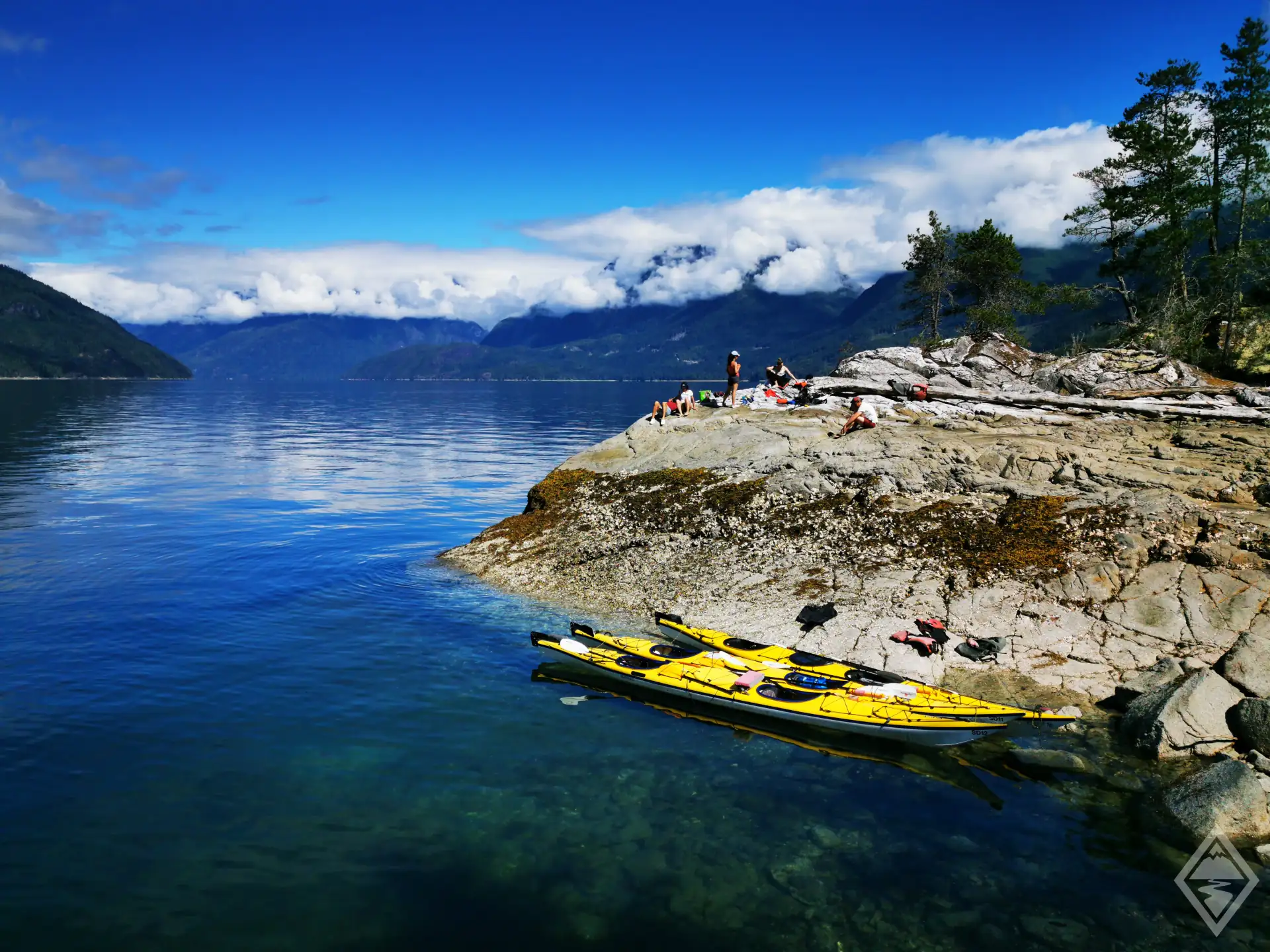
Route Details
-
Difficulty:Intermediate Paddling
- Duration: 4 days
- Route Type: Exploration
- Camping: Yes
Summary
Desolation Sound Marine Park is an incredible place to paddle. From accessible camp spots and very manageable paddling distances, whale sightings and relatively mild paddling conditions, it makes a great destination to hone your paddling skills if you have a few overnighters under your belt.
I haven't proposed a specific route in this guide as you really can just make it up. The distances are small enough that you can change camp each day if you like, or set yourself up with a base from which to explore. The options are endless, and I would just plan distances that work for the ability and stamina of your group.
The wind can make afternoon paddling more challenging, but there are plenty of bays and inlets, or sheltered camping spots to hunker down if you need to bail for a while.
I have done two trips to this area, once to stay around Desolation Sound (4 nights), and the other to paddle around West Redonda Island (4 nights). Both seemed like good amounts of time, though I'd happily stay longer.
Route Choices
You generally have two choices of where to start. Either from Lund Marina on the more exposed Straight of Georgia, or the more sheltered Okeover Inlet side. Distances are similar from both sides. On the straight you have more chance of whales, but also more chance of wind. Both have kayak rental options.
Navigation
-
Phone signal in BC is not reliable. Always carry an offline map. I recommend and use AllTrails+ for hiking or GaiaMaps for general adventuring. Google Maps does not always have reliable route mapping for backcountry adventures.
Don't Miss
Refuge Cove
There's a tiny community of people who live at Refuge Cove. Believe it or not, there's a small cafe there run by a lovely woman whose name escapes me. She opened up the cafe just for us, served us biscuits, had a coffee and a chat with us, and told us about her relationship to the McVities Biscuit family. Overall a welcome break on an otherwise long day paddling up the west side of West Redonda.
Conditions & Ability
Paddler Ability
In summer months, the conditions are generally good, though wind and waves may hamper your plans on occasions. I would not recommend this trip for novice paddlers. Make sure you have a few overnighters under your belt, and are comfortable paddling 10-12km in a day. In addition, everyone in your group should know how to read the weather forecast (especially the wind), and correlate that to the map of your paddling area. This will help you plan your paddling to have the wind behind you where possible, and help you identify sheltered spots when the wind picks up.
Tides & Currents
Tide-generated currents are relatively minor around Desolation Sound, with no rapids to worry about. Generally, however, the wind will be of bigger concern. Note that if you decide to explore further north around Redonda or Cortes Islands you may have more currents to deal with.
Wind & Waves
Desolation Sound is very sheltered from the ocean, so you won't find much in the way of big swell. Any waves you encounter are generally kicked up with the wind, which is *normally* most prevalent in the afternoon. Check your weather forecast, but in general, plan to finish paddling in the early afternoon to avoid difficult conditions.
The first time we paddled to Desolation Sound, we started on the Lund side. We actually had to delay our trip start by one day as the wind and waves were so high. Instead, we took a little water taxi from Lund to Savary Island where we enjoyed the tropical-like beach which was well-sheltered from the north-westerly wind.
Camping
-
Campsites around Desolation Sound are generally basic with zero facilities, though most have enough space for a good number of tents. If you choose to venture up around West Redonda, which is a much more committing paddle, the campsites tend to be smaller and less well-developed.
Whilst everyone has their favorites, there really aren't any bad camp spots as such. Those in the Okeover Inlet (I haven't been) won't have the expansive ocean views or potential for spotting whales on the glossy morning water, but they will provide more shelter in windy conditions. I've been to, or atleast paddled past all the camp spots except Bold Head and would happily stay at any of them.
To be honest, all the camp spots we visited were great, so I wouldn't particularly recommend one over another. Plan your route according to the wind, how you feel, and the currents if necessary. The campgrounds of Okeover Inlet or the Martin Islands may be your best bet for shelter if you want to hunker down for a day with a tarp. Kinghorn also has good tree options, but could be difficult to reach in choppy conditions for less experienced paddlers.
Pack out everything you pack in, and enjoy these stunning camp spots.
Suggested Season
- Months: May - Sep
Location & Access
- Region: The Sunshine Coast
- Fire Region: Coastal Fire Centre
- Vancouver Day Trip: No
- From Vancouver: 8hr(s)
- Public Transit: No
Getting There
-
From Vancouver
- Ferry from Horseshoe Bay to Langdale on the Sunshine Coast (Gibsons) (about 40 mins)
- Drive up to Earls Cove (90 mins)
- Ferry from Earls Cove to Saltery Bay (40 mins)
- Drive to Powell River Kayaks on the Okeover Inlet (60 mins)
From Vancouver Island
- Ferry from Comox to Powell River (90 mins)
- Drive to Powell River Kayaks on the Okeover Inlet (30 mins)
Alternatively you can start your adventure from Lund. Distances remain approximately the same for getting there and for paddling.
-
If appropriate to reach this adventure, rent a car, or better still, reduce the demand for cars with Evo Car Share, Vancouver's car sharing network.
You May Also Be Interested In
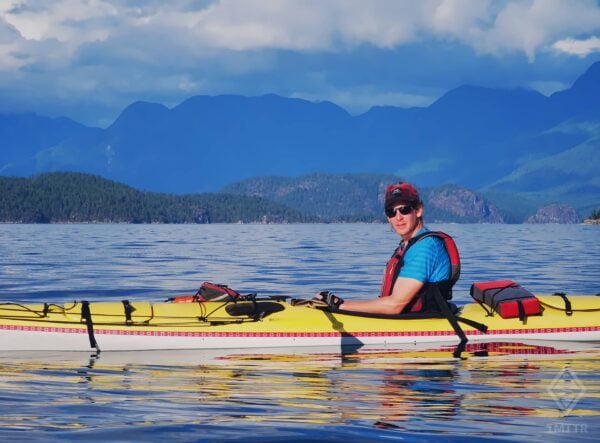
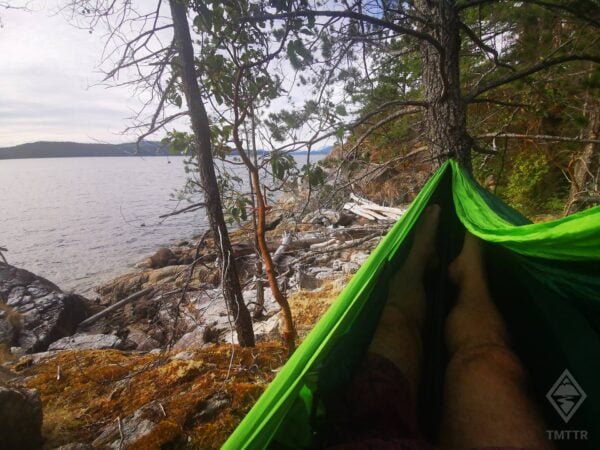
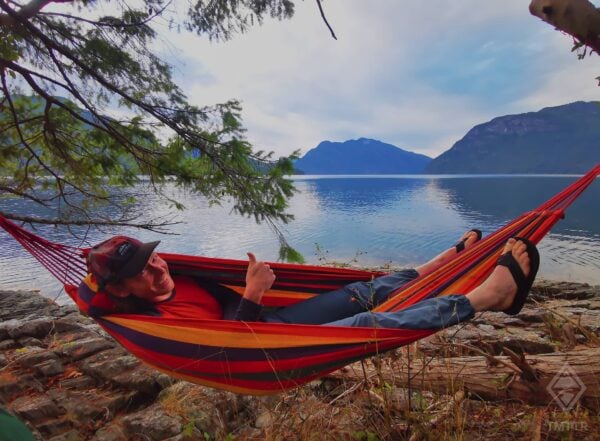
West Redonda Island
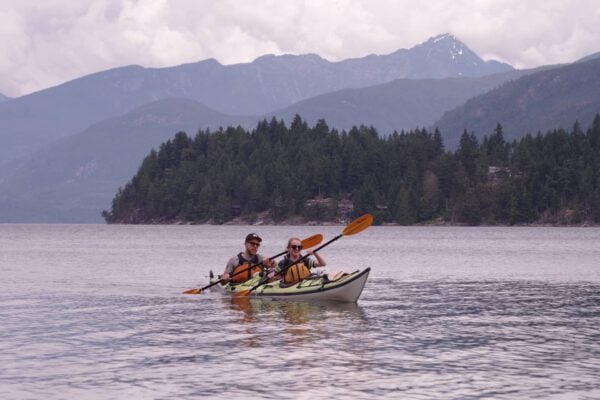
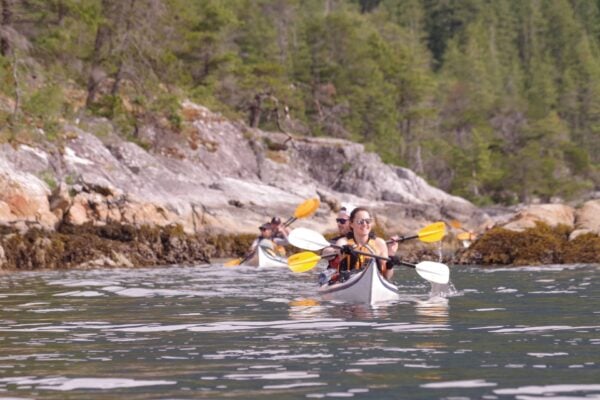
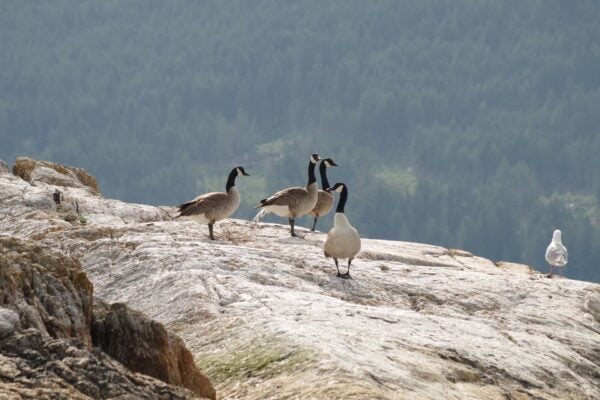

Add Review